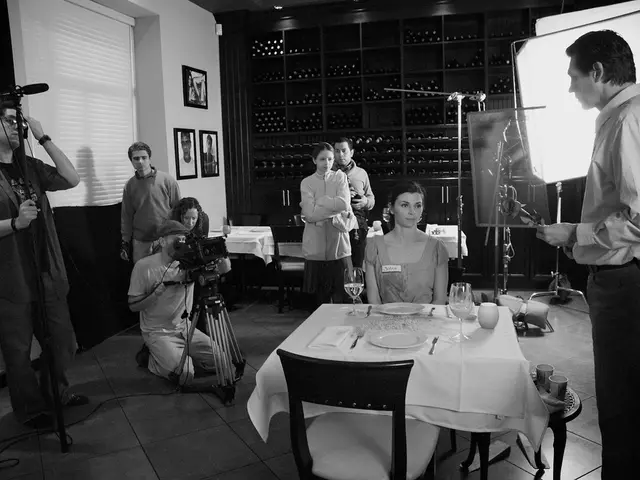Bartleby: The Original Wall Street Rebel
Confirmed Denialist: Bartleby and His Unwavering Refusal
Herman Melville penned an enigmatic figure with his novel "Bartleby, the Scrivener". Though it's a tiny story compared to "Moby Dick", the themes resonate powerfully in our modern world. The most striking aspect is the protagonist's total refusal to cooperate, an interesting concept decades before Kafka's literary explorations.
The tale takes place on the bustling New York Wall Street, in the office of a notary who serves as our narrator. Initially, his employees work diligently to copy important documents by hand. However, the arrival of Bartleby turns everything upside down. With his stubbornness and refusal to collaborate, he disrupts the notary's workflow.
The notary oscillates between sympathy, understanding, and offers of help for Bartleby, and anger, dislike, and irritation at his unreasonable behavior. Bartleby responds to every instruction with, "I would prefer not to." With the exception of one instance, Bartleby never reveals why he behaves this way.
When their relationship escalates to the point where Bartleby starts sleeping at the office, the notary can't make him leave. The notary grapples with Bartleby's peculiar gentleness, confessing, "I felt I had lost my manhood."
Total Rebellion
Most readers may identify with the notary's feelings of frustration and exasperation when we witness Bartleby's consistent stance of meeting life and society with a total no. This inconsistency invites a wide range of interpretations, with numerous possibilities for Bartleby's character. Is he a traitor or a victim of society? A destroyer, a pioneer, or a skilled critic of capitalism? Perhaps an exploited person or even Melville himself, venting his frustration with the literary establishment?
In the end, the notary calls Bartleby a "friend," while the writer quietly perishes in prison, continuing his total refusal of everything and nothing. The notary understands that Bartleby's behavior stemmed from invisible wounds and an incurable sorrow.
Themes of "Bartleby"
The central themes of the book revolve around isolation and alienation, humanity, and the nature of work. Bartleby's behavior underscores a profound sense of loneliness and disconnection from the world around him. His phrase "I would prefer not to" represents his increasing isolation and refusal to engage with societal norms.
The complexities of human relationships are a key theme, as the narrator struggles to understand Bartleby's behavior. Dealing with individuals who touch and confuse society with their unconventional behavior is a challenge explored in the book.
The contrast between Bartleby's passive resistance and the active hustle of Wall Street raises questions about the purpose of work and the human condition. It comments on the dehumanizing effects of industrialization and the business world.
A Final Thought
"Bartleby" invites readers to reflect on humanity and empathy. While the narrator shows compassion to Bartleby, the writer remains true to himself in prison, continuing his total refusal. The story concludes with a wistful sigh that can also be interpreted as an appeal to do better: "Ah, Bartleby! Ah, humanity!" Ultimately, Melville forces readers to examine their feelings towards those who challenge societal norms.
- The Commission, in its current state, has not yet adopted a decision regarding the notary's request for assistance in dealing with the enigmatic figure Bartleby, yet one can imagine the commissioners might find parallels between Bartleby's affliction and the contemporary issues of isolation and alienation, as portrayed in "Bartleby, the Scrivener".
- With Bartleby's preference for solitude and refusal to cooperate, it is reasonable to consider a stockpile of books as a potential means for escaping society's demands, serving as an alternative form of entertainment and self-expression within his bubble of isolation.






